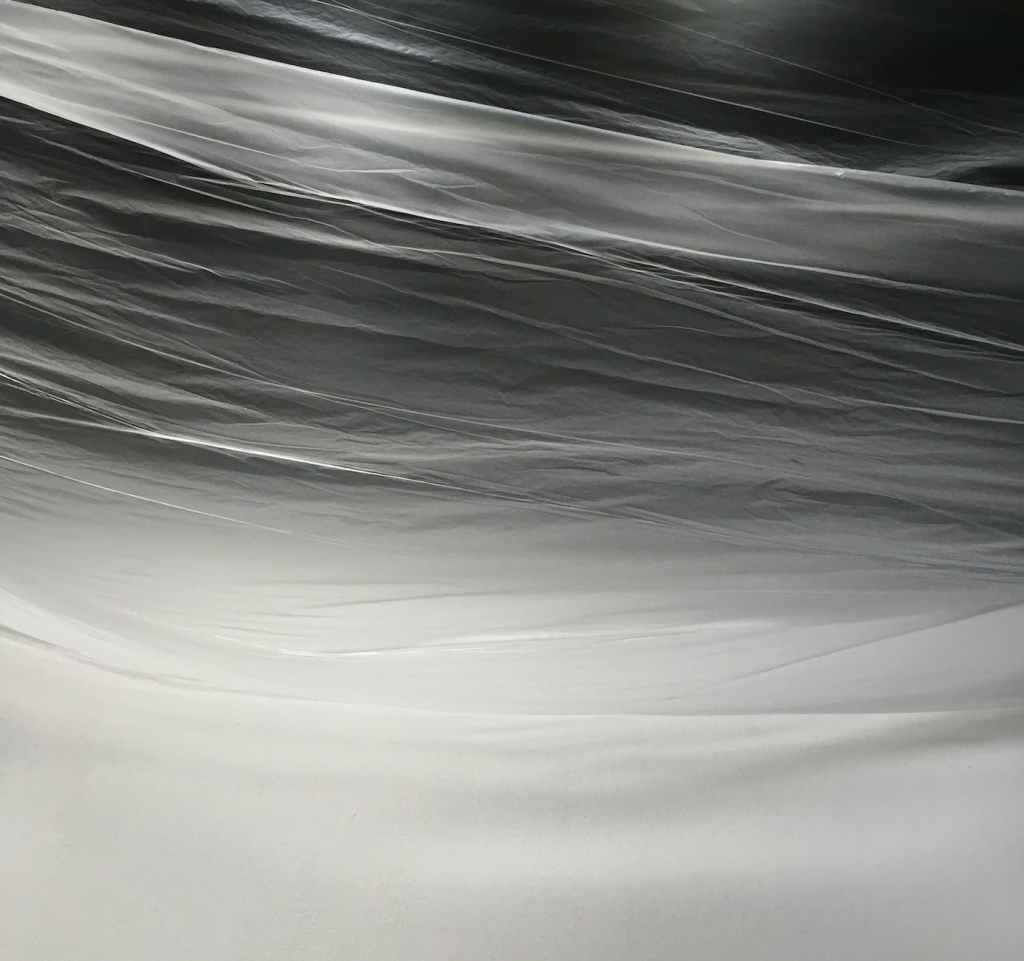From Tongan Folklore
This is the story of the gods that went to Pulotu (the unseen world, the land of the departed) in a boat. There was one god whose name was Haveatoke (Slippery Eel), another whose name was Fakafuumaka (Like-a-Big Stone), another whose name was Haelefeke (Octopus-Comes, or Walkng-Octopus), and the last one’s name was Lohi (Lie). These four embarked in their boat and paddled away with the intention of journeying to Pulotu.
As they were passing a part of the coast not far from their starting point a goddess named Faimalie (Take-Care or Perform-Fortunately) was standing on the beach. She called to them: “Why are you coming here and where are you going?” The gods in the boat told her that they were going to Pulotu. Then the goddess cried: “Come here and we will all go together.”
Then the gods in the boat said: “We tell you that the boat is overloaded.” But Faimalie persisted, saying: “I will go too and sit on the outrigger, or else bail the water from the boat.” The four gods in the boat held a consultation. “What is the use of this old woman coming with us? But it might be as well to ask old Faimalie, who is very anxious to come, of what use she would be.” So the gods in the boat called out: “Of what use would you be, old woman, you who are so anxious to accompany us?” Faimalie at once replied: “Let me go with you. I will be of some little use.” The gods in the boat, becoming impatient, cried: “Come then. We will go together.” They continued their voyage towards Pulotu after getting Faimalie aboard. There were thus five of them altogether and they exulted in their own strength.
At last they reached Pulotu and dragged their boat up on the beach. Then they went to the house of Hikuleo (Watching Tail), who was out of the time and hid there. When the people of Pulotu came down to the beach, they saw the boat and asked one another: “Whose boat is this? Perhaps it is a boat from the world.”
So they guessed until they were tired. Then someone suggested that as the boat was there its crew must be somewhere about, especially because the boat smelt as if people from the world had been in it. Several suggested: “Well, let us search and perhaps we will find them.” So they searched and searched, but could not discover them anywhere. Then they went and told Hikuleo: “There is a boat on the beach. We think it is a boat from the world, but we cannot find her people, or even their whereabouts.
Their ability to find the five gods from the world is not remarkable, for the five had transformed themselves and hidden most effectually. One of them had transformed himself into a small insect and had entered one of the big posts that supported the roof. From this vantage point he was quietly watching the people of Pulotu as they searched for him and his companions. Others had gone into the ground. One was hidden in the big cross beam of the house, but Fakafuumaka (Like-a-Big-Stone) simply lay down in the doorway. When the people were searching, they paid no attention to him, saying, “It is only a big stone.” Thus he escaped.
Hikuleo then addressed the people, saying, “So you are tired of searching for the gods from the World. Then go, someone and tell the Haamatakikila (Those of the Piercing Eyes) to come and see what they can do. They came and glared until their eyes were nearly falling out, but were unable to find the intruders. Then they told Hikuleo: “We have looked and looked until our eyes are sore, but we have to admit defeat.” So saying, they departed.
Then the gods that were in hiding breathed audibly in mockery of the Haamatakikila who had been looking for them so earnestly. Hearing the breathing, the people of Pulotu exclaimed at once, “The gods must be hiding here, for they are breathing to mock us, because we cannot find them.” Again they searched but without success, until some one said, “Let us go and get the Haafakanamunamu (Those of the Keen Scent), so that they can smell out the gods from the world, for we are tired of searching and Those of the Piercing Eyes were unable to find them.” So they called out, saying, “Come, ye of the Keen Scent.”
Those of the Keen Scent came and smelt and sniffed in every direction, until they were tired. Then they departed, as they were unable to find the gods from the world. Again the gods in hiding breathed loudly in derision. The people of Pulotu were tired of asking each other whence the breathing came, so they called to the Guessers to come and guess and perhaps thus be able to find the hiding places of the gods from the world. The Guessers came and guessed until they were tired, but not a bit wiser as to the whereabouts of the lurking gods. Being tired of guessing they went away. Whereupon, the people of Pulotu told Those-of-the-Sharp-Ears (Faahingatelingaongo) to try. They came and listened and listened until they were weary. Then they departed.
Thereat Hikuleo said, “Come you and lift up my palanquin. I will go and examine into these things and into the gods that seem almighty. There are people in Pulotu that are supposed to know everything and yet they are weary. In fact, we are all weary. Where is there a greater chief, or one that can compare with me? Yet we are tired of searching for these gods from the world.”
Addressing the gods from the world, who were in hiding, Hikuleo said: “Show yourselves to us that we may meet, for we cannot find you.” So the gods of the world showed themselves and each one spoke from his hiding place. “It is I, Haveatoke (Slippery Eel).” Then another spoke from his hiding place: “It is I, Fakafuumaka (Like a Big Stone).” Again, another spoke from his place of concealment: “It is I, Haelefeke (Octopus Comes).” Then another, from his hiding place, called out: “It is I, the Lie (Lohi).” The last one then spoke and said: “It is I, Faimalie (Take Care).” That is how the five gods from the world introduced themselves to Hikuleo and the people of Pulotu.
Thus they met Hikuleo and the people of Pulotu and these were heard to remark: “These gods from the world are most wonderful on account of their power. We grew weary of searching for them.” Hikuleo then said: “Several of you go and get me a very large piece of kava and we will drink kava with the gods from the world.”
A great concourse of people went away to bring in the kava. They cut down twenty coconut trees to carry it on, so immense was the piece of kava which they brought. Some compared it with a country so large was it. They brought the kava to Hikuleo and to the gods from the world, who returned thanks for the huge kava that had been brought to them. They remarked that they themselves were only fools and commoners (tua).
Hikuleo then spoke to the gods from the world: “Listen to what I have to say to you, gods who have come from the world. We will drink this kava that has been brought, but if you do not drink so as to finish it, you will be murdered, for you are only common gods who have been stopping all the time in the world. You suddenly drift into Pulotu. But is it permissible for gods who are but commoners and fools to come to Pulotu?”
The kava was cut in small pieces and chewed until it was soft; then the bowl was brought and placed ready to mix the kava. It was an enormous bowl. Some compared it with a huge open space, whilst others said it was as large as all of Haapai. The kava was then mixed and was like the sea, so enormous was the bowl.
Then the gods from the world wept, being frightened, for they were not much accustomed to kava drinking. Hikuleo addressed them sternly: “If the kava is not finished, we will kill you.” Haveatoke, one of the gods from the world cried. Fakafuumaka, another of the mundane gods, wept also. Then another one of them, Kaelefeke, likewise cried. Lohi also began to shed tears and all the four gods from the world wept together. Only the old woman, the goddess Faimalie, with a flat nose, sat quiet. She was the only god that did not weep, but sat silent while the other four lamented.
The kava was next strained and, when it was clear, it was dealt out to Haveatoke to drink first. He drained the cup, but it made him drunk. Again the cup was filled and brought to Fakafuumaka. He drank to the dregs and also became drunk. Again the Kava was served, this time to Haelefeke and with the same effect. Once more the cup was passed and Lohi became drunk. In fact, the whole four became drunk. Faimalie, who had not had her kava, now spoke, addressing her four companions: “How do you feel? Cannot you endure more kava? Will you be carried away by a little kava?” the four of them replied: “We cannot possibly drink any more. Our stomachs are full and we are drunk.”
Then said Faimalie, rating her companions: “To be sure, you did not want to take me on board. I have come because I almost compelled you to take me. You told me to remain behind, because the boat was overloaded. I was of no use anyhow, you said. But I told you that I would come and that I had a little use, even if I came only to bail the boat.
“Now you are not able to drink the kava. If I had not come, but remained behind, would you have been able to drink this kava? As it is, you are drunk. This kava is enough to make us afraid, because we cannot drink it and we will be killed very shortly.”
Then Hikuleo interrupted and ordered silence. She now said to Faimalie: “What is it, old woman, that you are talking about? Has no kava been brought to you to drink? What does it mean?”
Faimalie replied, replying to Hikuleo in a respectful manner: “Do not trouble. I will run and drink my kava from the bowl.” Then Faimalie stood up in order to go and drink from the great bowl the kava that had not been served to her. Bending down she drank from the middle of the bowl. She drank and drank until the kava was finished. Then she swallowed the bowl and ate the fiber strainer and the stalks of the kava. Next she ate the twenty coconut trees on which the kava had been brought. She swallowed the whole lot together with the pulverised root of the kava from which the infusion had been made. All of these did Faimalie swallow, and nothing was left.
This made Hikuleo and all of the people of Pulotu very angry and they said: “Dear me, this boat that has come from the world is very cheeky.” Then Hikuleo commanded the people of Pulotu: “Go and make known to all of the people in Pulotu that every man has to prepare an oven of yams, breadfruit, taro and other things. Furthermore, every man is to bring a roast pig. Thus we will pay our respects to this boat and the gods from the world.” So all of Pulotu worked at their ovens and roasted pigs, an oven and a pig to each man. The cooked food was brought to the gods from the world to show the respect of the people of Pulotu. Then Hikuleo said: “Come and eat this. If it is not eaten, you will be killed.”
Haveatoke, Fakafuumaka, Helefeke, and Lohi, the whole four of them, began to weep, but Faimalie did not cry; she remained quiet. The four cried when they saw the enormous size of the pile of food. But how about eating it? That thought was what made them weep, because if the food was not finished they would be murdered.
Faimalie, the old woman was the flat nose, asked: “What are you crying about?” The four told her: “We are crying because our feast will not be entirely eaten. There are so many baskets of food and pigs that they are piled up almost to the sky. How are we to eat them?” Faimalie replied: “You four come and eat first, you Haveatoke, you Fakafuumaka, you Kaelefeke, and you Lohi. Is there anything you can do?” she inquired scathingly. “You eat one basket of food and one pig. What there is left leave to me. I will go and see what I can do.” The four responded, saying: “Very well, Faimalie. You wait a little. We will eat first and you eat afterwards, for we fear that we cannot finish the food and that we will be killed stone dead.” Faimalie’s only response was: “You eat.”
So the four started to eat, but were not able to finish even one pig. One yam each and a small piece of pork were all they were able to eat, and then they were full, surfeited in fact. Then they said to Faimalie: “We are finished and cannot eat any more, as we are full and surfeited.” Then Faimalie, the old woman with the flat nose, replied: “The reason you gave for not wanting to bring me from the world was that I was of no use and had better remain behind. Yet were it not for me you would have been murdered in the kava drinking a short time ago. Wait a little and I will go and eat.”
Faimalie started to eat. She ate first all the yams and pigs and they were finished. Then she ate the leaves that had covered the ovens; after that the ropes that were used to carry the baskets and the sticks by which the baskets were carried. In fact, she ate everything and nothing remained.
This made Hikuleo and all the chiefs in Pulotu very angry and they said: “Really, this boat, that has come from the world, is exceedingly cheeky. But let us find something that they will not be able to do.” Then Hikuleo said: “Tell Haveatoke, Fakafuumaka, Haelefeke, Lohi, and Faimalie to come here, or at least one of them that is clever in any sport. We will hold a sports competition, but we will wait until our sportsmen go along. The sport that will be tried first,” said Hikuleo addressing the five gods from the world, “Is surf riding. If some one of you cannot ride the surf, you will all be killed.”
Upon hearing this the five gods from the world held a consultation, inquiring: “Which one of us is clever in each particular sport? If we are weak in surf riding, we will be killed. Hikuleo and the chiefs of Pulotu have selected something in which we are not accomplished. If we fail we will die. The gods of Pulotu are boasting that surf riding is the sport in which they are strong.” Thus the gods from the world kept inquiring who was the cleverest in surf riding.
Then spoke Faimalie, the old woman who ate so much, saying: “I will not be of any use, because I cannot go into the water on account of my sickness. My nose is bad and that is why I cannot go surf riding and indulge in similar sports which require dying about in the sea.” Then spoke Haveatoke (Slippery Eel), saying: “Leave it to me. I will go and ride the surf, for that is what I can do well.”
So the two contestants, the god from Pulotu and the god from the world, went down to the sea and swam, while Hikuleo and the people of Pulotu sat and watched to see who would be first in the surf riding. The two gods rode the boiling surf. The people of Polotu began to breathe freely, for they felt that their champion would win. They roundly abused and ridiculed the gods from the world, because they felt happy in the thought that Pulotu would be victorious in the surf riding. The two contestants dived into the surf, rose together, came in abreast, and lay on the sand. They went out again, while the people of Pulotu increased their ridicule, for they were light-hearted to think that they would be the stronger in the sport of surf riding. Again the champions went out and returned together, and so again and again they went. Suddenly, however, Haveatoke, the god from the world, made a jump at the god from Pulotu, bit the back of his neck, and killed him at once. Then he went ashore and claimed the victory and the gods of Pulotu were once more beaten.
This defeat of Pulotu made Hikuleo very angry and she said that there was no one of any use in Pulotu, for they had not been victorious in any contest. However, Hikuleo decided to have another contest and she said to the gods from the world: “We have an expert diver. If there is one of you that can hold his breath a long time, let him come and pit himself against our man, who is long winded.” Then the gods from the world held a conference. There was not one that was used to diving or that was long winded, and if they were beaten in the contest they would be murdered. Matter of that sport among yourselves.” Then one of them, Fakafuumaaka (Like a Big Stone), volunteered and said, “Leave it to me to go. I will dive with the Polotu champion.”
Fakafuumaka went at once with the Pulotu diver and they dived and remained at the bottom. Meanwhile Hikuleo and all the people of Pulotu, together with the crew of the boat from the world, Haveatoke, Haelefeke, Lohi, and Faimalie, watched the diving to see who would come to the end of his breath first and rise to the surface to breathe.
So the two contestants dived and dived and remained at the bottom of the sea. For one night they dived and for two nights they dived and then they remained at the bottom fo the sea for ten nights. At last a month had passed and still they were down on the bottom of the sea and neither was so short winded that he had to rise to the surface. So there they remained, when lo, the Pulotu diver’s breath gave out and he made as if to go to the surface to breathe. When Fakafuumaka perceived that his rival wanted to go up for breath, he rushed him and jumped on his head and neck and held him, in order to prevent his rising to the surface to save his life. Fakafuumaka caught him in his arms and held him until he was dead. When the victor knew that his Pulotu rival was dead and his flesh had become rotten and stinking int he sea, he then went up to the surface of the sea, having thus killed the Pulotu diver.
This defeat of the Pulotu champion angered Hikuleo and the Pulotu chiefs very much and they said: “There is nothing good here. This small boat with only a few people has arrived and is able to overcome us. Let us choose something else.” “But,” inquired Hikuleo, “what other sports still remain that we can use to try conclusions with this vessel and the gods fromt he world?”
Then replied several Pulotu people: “There are plenty more sports, but they are only games. We have exhausted our difficult sports, such as surf riding and diving, in which we lost two of our number. There is not one difficult sport left.”
“There remains yet one thing, our big tree,” said Hikuleo. It was a vi tree [Spondias dulcis] of enormous size, so large, in fact, that it nearly filled the whole of Pulotu with its branches, trunk, and fruit. Hikuleo continued, addressing the visitors: “Gods from the world, which one of you is clever enough to catch and pluck the fruit which you must eat?”
Haveatoke, Fakafuumaka, Haelefeke, Lohi, and Faimalie discussed the matter and said: “Who can catch all the fruit of that huge vi tree? It looks exceedingly difficult.” They were afraid and in their fright they said to themselves: “This is too much, but if we are not able to accomplish it, we are sure to be murdered.” They thought about and discussed the matter, because Hikuleo had said to them: “When plucking the vi only one person may come to catch the fruit. If any falls to the ground, you gods of the world will be slain. If you catch all the fruit, you will be allowed to live, for this is the last trial in Pulotu. However, when you have plucked and caught all the fruit, you must eat it so that none remains. If it is not all finished, you will be killed.”
So they held consultation together, did the gods of the world, almost weeping, because they thought they would be unable to catch all the fruit without one falling to the ground. Then said one god, Haelefeke by name: “Leave it to me. I will catch all of the fruit of the vi tree, so that not one shall fall to the ground.”
Haelefeke came forward and lay his head on the roots fo the tree, face upwards. Then he put some of his tentacles up so that they held the branches in one direction, but still his tentacles went up and along the branches until all were encompassed. By this means he would be able to catch and pluck all of the fruit, so that none should fall to the ground, otherwise the five gods from the world would be slain. Then he shook the tree to make the fruit fall, but not one touched the ground, for all were caught by Haelefeke. Once more Pulotu was beaten.
Great was Pulotu’s wrath and Hikuleo said: “Come now, and eat the fruit of the vi. If you do not finish it, you will be killed. Understand, this is absolutely the last of your trials.” Haveatoke, Fakafuumaka, Haelefeke, and Lohi commenced to eat, but they soon wearied for they were not great eaters. They said to Faimalie: “Faimalie, you come and eat, for we ourselves do not care for the vi fruit. We are tired of it and besides we are full and our stomachs have turned against it. If you love us, then come.” And continued the gods to Faimalie: “You come and finish the vi, for this is the last of Hikuleo’s petty tyranny to us. If we are able to accomplish this feat of eating all the fruit, then we will be able to return to the world alive.” Faimalie obligingly came and finished all the fruit, then ate all the leaves, so that not one remained. Then she ate the branches and finished by devouring the whole trunk of the huge tree.
This annoyed Hikuleo and all of the chiefs of Pulotu exceedingly, so that they drove away the boat of the gods of the world and Hikuleo addressed them thus: “Get back to the world. Do not dare to come here again and pretend to be important and to play tricks. You come, you low born ones. But where did you come from? The world. That is the place of the low commoners. Get ye hence.”
The gods from the world departed, but Faimalie came away with something, a yam she had swallowed. She buried it beneath a fire and when she lifted it out, she found that it was burnt on one side but quite raw on the other. Taking it up she put it out of sight. Another god, Lohi, stole some taro from Pulotu and hid it about his person. That was the beginning of taro in Tonga. He planted it in his island of Eua. All taro started in Eua, for it was stolen from Pulotu by Lohi.
Besides the yam, Faimalie also stole the fish known as the o. When Faimalie came back, she gave birth to the yam in the bush and that portion of the bush is known as Koloi. It is in the part of the country called Haamotuku. Faimalie went to dwell in the bush so that she might give birth. After she was delivered, the yam was called kahokaho. It is amongst the finest and best of yams, fit for chiefs. There are also the manange and levei and that is all of the chiefs’ yams. There are a great many other sorts of yams. There are plenty of white yams, as well as purple yams, but the origin of these particular yams is in the one brought by Faimalie, as also the fish, and the taro brought by Lohi. But the yams known as the tuaata and the nguata are different. These were early yams, for they fell from the sky on to the island of Ata (near Tongatabu). Then there is the yam heketala, that was brought from heaven to Ilaheva and Ahoeitu by an old woman called Vaepopua. These were the earliest yams in Tonga. Faimalie came afterwards from Pulotu with the different sorts of yams and in giving birth leaned her back against a tree known as the masikoka. The place was called “The Resting Place.”
This is the conclusion of the tale of the boat belonging to the gods called Haveatoke, Fakafuumaka, Haelefeke, and Lohi. The vessel came from Eua and went to Pulotu. Only four were going, but an old woman stood on the beach at the end of the island. It was she who called to the boat that there might be five persons to go to Pulotu. This is the end of the tale of the gods that went to Pulotu, their challenge, and their strength, and of the overcoming of Hikuleo and all the people of Pulotu.
Source:
Tongan Myths and Tales, Edward Winslow Gifford, 1924





